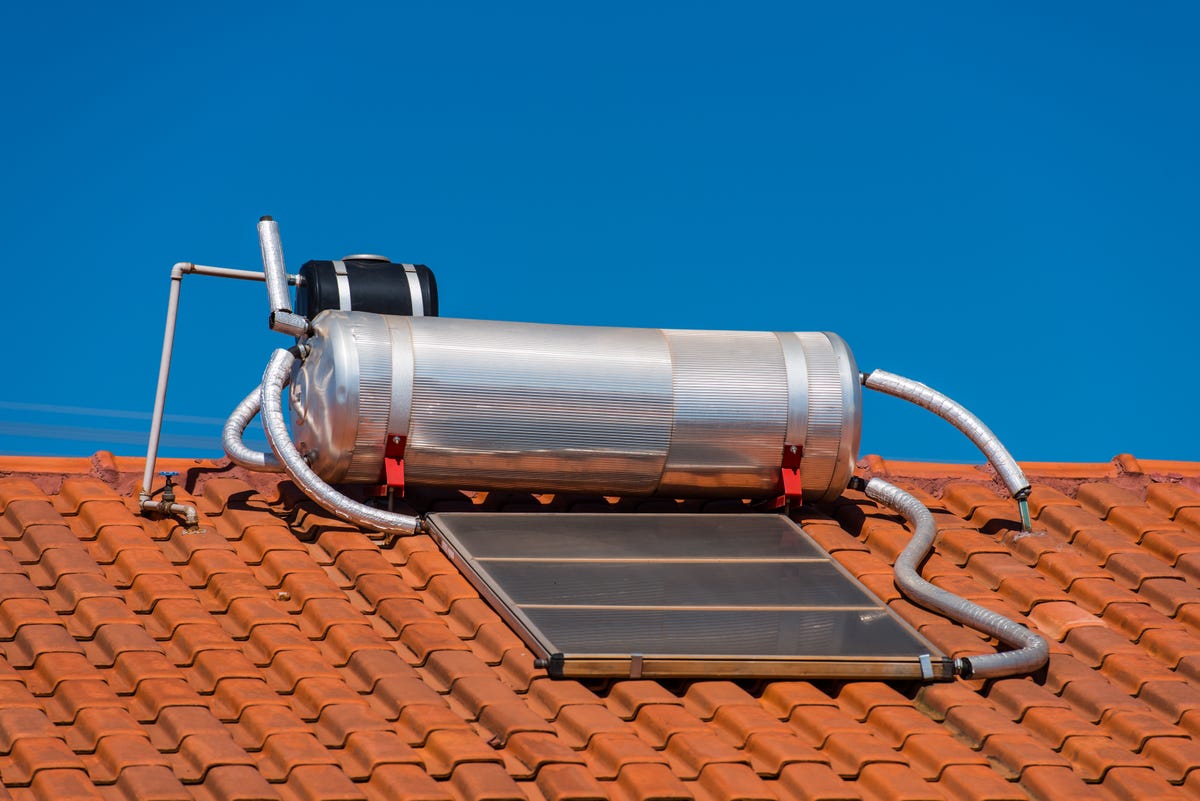You might not think much about your water heater — unless it’s not working. That’s understandable: It’s likely one of those appliances that came with your home when you bought it, or that you’ve bought and forgotten about. But did you know that the average water heater is a major energy eater? According to the US Department of Energy, water heating is the second-largest energy expense for most homes, accounting for nearly a fifth of all of your home’s energy usage in a month.
For that reason, finding the right water heater is essential for your home and your energy bill. Water heaters will last anywhere from 10 to 20 years typically, depending on the type, which means you’ll live with your choice for up to two decades. You want that price tag to be as small as possible while getting the hot water you expect.
You’ll have to wade through the different types of water heaters, fuel sources, capacities, costs over time and additional features. While it may seem overwhelming at first, we’re here to help you decide which water heater is right for you and your home.
Types of water heaters
If you’re new to the water heater market, you might not even realize there are different types to choose from. While storage water heaters remain the most common, there are a variety of water heater types, each with their own unique set of features and functions that set them apart.
Storage water heater
“Storage water heaters, also called tank water heaters or traditional water heaters, use electricity or gas for heating water,” said Kelly Russum, owner of KC’s Twenty Three and a Half Hour Plumbing and Air Conditioner in Palm Springs, California. This is the most common type of water heater for both residential and commercial buildings. It consists of a tank that holds a certain amount of water, typically ranging from 20 to 80 gallons. The tank is insulated to help retain heat and keep the water warm until it is needed.
A storage water heater heats water using an electric heating element or a gas burner located at the bottom of the tank. As cold water enters the tank through a supply pipe, hot water rises to the top of the tank where it’s distributed to the rest of the house when a faucet or appliance calls for hot water.
Storage water heaters are relatively affordable, are simple to install, and can supply hot water to multiple fixtures simultaneously.
“Storage water heaters can offer between 20 to 80 gallons of water right away, which makes them an excellent solution for big families of four or six,” Russum said.
However, they are energy inefficient and prone to lose heat from the tank even when hot water is not being used. Regular maintenance, such as flushing the tank to remove sediment buildup, keeps them as efficient as possible and prolongs their lifespan.
Tankless water heater
A tankless water heater, sometimes called an on-demand or instantaneous water heater, doesn’t use a storage tank and heats water only when it is needed, providing a continuous supply of hot water on demand. When a hot water tap is turned on, cold water travels through a pipe into the unit, where it is heated, typically by a gas burner or an electric element. The heated water then flows out of the unit and to the desired fixture or appliance.
One major advantage of tankless water heaters is their energy efficiency. Since they only heat water as needed, there is no standby heat loss, resulting in potential energy savings over storage water heaters. Additionally, tankless heaters have a longer lifespan than storage heaters, often lasting 20 years or more with proper maintenance.
“While they don’t have a tank for storing water, they still need to be flushed from time to time to remove scaling and prevent breakdowns,” Russum said.
Tankless water heaters have higher upfront costs than storage heaters and may require upgrades to gas lines or electrical systems during installation. They also have limited flow rates, which means the temperature of the water may fluctuate if multiple hot water sources are used simultaneously in a larger household.
Heat pump water heater
A heat pump water heater is an increasingly popular alternative to traditional water heaters that moves heat from the surrounding air to the water being heated. It uses a compressor and refrigerant system to transfer heat from the air to the water in the tank where the heated water is stored for later use. It’s the same principle that heat pumps use to heat or cool the air in your home.

